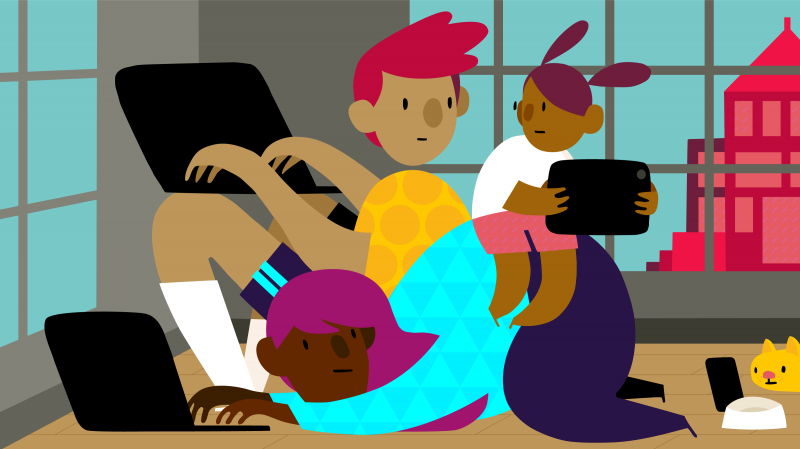2. Do you work outside of the house and therefore need someone at home with the kids?
3. Do you work from home, and if so, do you need some help entertaining or occupying your kids while you're on the clock?
That could be a "mother's helper," i.e., a younger person who potentially charges somewhat less than a full-fledged babysitter.
4. Does your job have any family leave or any schedule flexibility?
The Center for WorkLife Law at the University of California, Hastings College of the Law has a free legal hotline to help you understand your rights better as an employee to pandemic-related leave or to schedule adjustments.
5. If you're thinking about taking a step back from work, have you calculated not only the loss in earnings now, but the loss of retirement contributions and a wage penalty you may pay long term when you go back to work?
Paying for child care may start to look like a better investment when you do the full math.
6. You may be managing now without help, but are you stressed to a level that might lead to burnout?
Just a few hours a week of help could make a difference.
7. Do you have what you need to make learning easier at home?
Look at your state's learning standards to get a sense of what your child should be learning this year. Many are based on the Common Core.
Since we're less likely to spread the coronavirus outdoors, are there ways that you could make your outdoor space easier to learn in, even when it starts to get cold? You might look for rain gear, boots and long underwear for your kids. You could also consider a rain shelter, or possibly an outdoor heater or fire pit.
Questions about your household
8. Do you have a high-risk household member?
This could make it harder to let someone else in to care for your kids. One alternative could be outside or socially distanced play groups.
9. Do you have a partner? How's your division of labor and time? Could the partner step up?
This survey suggests mothers are doing more.
Questions about your kid(s)
10. How old are your children?
For younger kids, some experts say, the need for in-person learning is greater. (It's important to note that many experts say we'll only have a real sense of spread between young children once they're back at school in person.)
11. Do your kids have special needs?
Many parents of children with special needs say remote learning just isn't working, and some are successfully getting districts to pay for in-person services.
12. How did your kids do with remote learning in the spring? Can they stay engaged independently, or do they need continuous support?
Take note that many public school districts are promising a more robust and engaging remote learning experience this fall.
13. How much do they need peers right now? Do they have siblings or others in the household to play with?
Some children are doing fine, while others are having a hard time right now.
14. Have you asked them how they prefer to spend their time this fall?
Questions about your village
15. Are you comfortable having conversations and negotiations about coronavirus safety, including masks and quarantining, with anyone you might bring into your "bubble"?
(Here's a primer on those bubbles, or pods.)
16. Is any family member — grandparent, aunt or uncle, or cousin — able or willing to help out? Could you — or they — relocate if necessary to make that happen?
17. Are there other families nearby who could rotate care?
18. Are there free or affordable school or community-based child care options in your district?
These are available, for example, in the Denver area and in New York City. If they don't yet exist where you live, could you join an effort to push for them?
19. Have you looked into in-home day cares, one of the cheapest full-time options?
Many in-home day cares are often quite small, too.
20. Have you checked out the resources from your local day camp, YMCA, gymnastics gym, dance studio or church?
Almost anywhere that typically houses or entertains kids is trying to come up with a way to help parents meet this need at a variety of price points.
We'd love to hear from you. Leave us a voicemail at 202-216-9823, or email us at LifeKit@npr.org.
For more Life Kit, subscribe to our newsletter.
The podcast portion of this story was produced by Clare Marie Schneider.
Copyright 2020 NPR. To see more, visit https://www.npr.org.
9(MDAxOTAwOTE4MDEyMTkxMDAzNjczZDljZA004))



9(MDAxOTAwOTE4MDEyMTkxMDAzNjczZDljZA004))